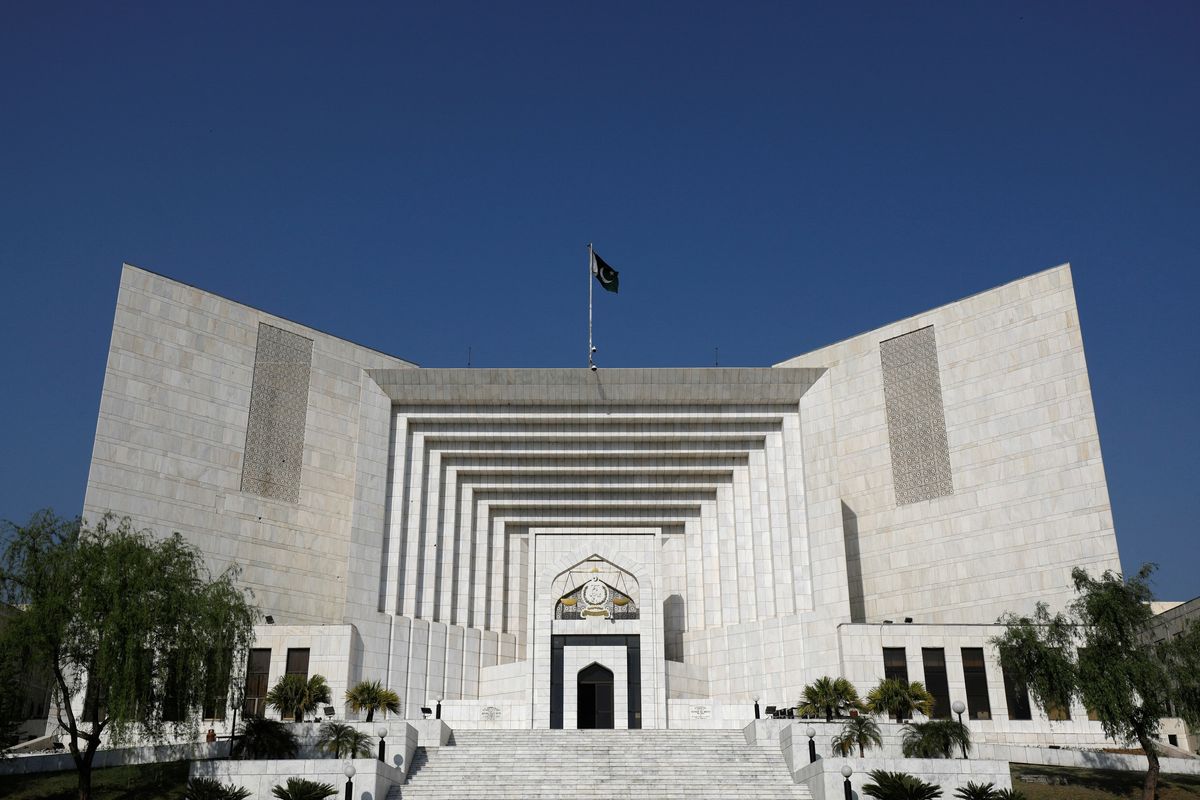Pakistan’s top court to revisit ruling that gave reserved seats to Khan’s ally
PML-N, PPP and ECP argue the ruling bypassed the constitution and changed post-election landscape

Aamir Abbasi
Editor, Islamabad
Aamir; a journalist with 15 years of experience, working in Newspaper, TV and Digital Media. Worked in Field, covered Big Legal Constitutional and Political Events in Pakistan since 2009 with Pakistan’s Top Media Organizations. Graduate of Quaid I Azam University Islamabad.

Pakistan’s Supreme Court has formed a 13-member larger bench to review its July 2024 ruling that granted reserved seats for women and minorities to the Sunni Ittehad Council (SIC), a religious party bolstered by dozens of independent candidates backed by former Prime Minister Imran Khan.
The new bench, led by Justice Amin-ud-Din Khan, will begin hearing the review petitions on May 6, the court announced Tuesday. The petitions were filed by the Pakistan Muslim League-Nawaz (PML-N), Pakistan Peoples Party (PPP), and Election Commission of Pakistan (ECP).
All three parties have argued that the original judgment bypassed constitutional procedures and electoral law, fundamentally altering the post-election landscape.
What’s the controversy?
The controversy dates back to the 2024 general elections, when Imran Khan’s Pakistan Tehreek-e-Insaf (PTI) was barred from using its cricket bat symbol due to internal irregularities.
PTI-backed candidates ran as independents and, after the vote, over 80 of them joined the SIC.
The SIC then sought proportional representation on reserved seats in both the national and provincial assemblies. However, the ECP rejected the request, citing that the SIC had not submitted its list of reserved seat candidates before the election, as required under the constitution.
The Peshawar High Court upheld the ECP’s decision. But in an 8-5 ruling on July 12, 2024, the Supreme Court sided with SIC, granting the reserved seats and, in effect, shifting the parliamentary balance toward PTI-aligned forces.
Backlash
The judgment drew immediate criticism from legal experts and political parties, who accused the court of overreach. A key point of contention was the court’s allowance of a 15-day window for independents to join a party — a departure from the constitution’s Article 51(6), which sets a three-day limit.
Critics said the ruling amounted to judicial legislation by creating a legal framework that did not exist.
In its review petition, the PML-N argued that neither the PTI nor its former members had petitioned the court for reserved seats. The SIC, it said, could not claim those seats because it failed to meet basic legal conditions, including pre-election submission of candidate lists.
Nawaz Sharif’s counsel, Barrister Haris Azmat, said the court had treated the SIC as a proxy for the PTI without any formal request from the PTI or a merger between the two.
“This interpretation stretches judicial authority into legislative terrain,” the petition stated, accusing the bench of crafting procedures inconsistent with both the constitution and the Election Act.
Five majority judges absent from new bench
Notably, five of the eight judges who authored the majority verdict — including lead author Justice Mansoor Ali Shah — are absent from the new 13-member bench.
According to court officials, the exclusion is procedural: the five are not currently part of the constitutional bench. However, the absence has raised eyebrows among legal observers, given their central role in the original ruling.
The new bench includes Justices Jamal Khan Mandokhail, Muhammad Ali Mazhar, Ayesha Malik, Hasan Azhar Rizvi, Musarrat Hilali, Naeem Akhtar Afghan, Aqeel Abbasi, Shahid Bilal Hassan, Hashim Kakar, Salahuddin Panhwar, Aamer Farooq, and Baqar Najafi.







Comments
See what people are discussing